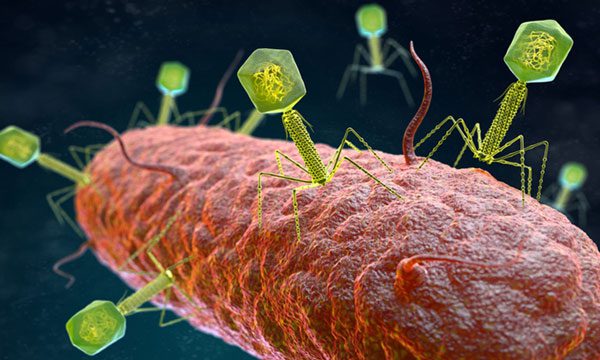A new study may help develop treatments based on bacteriophages – a type of virus that specifically attacks bacteria and is harmless to humans.

Most newly discovered viruses are bacteriophages – a type of virus that attacks bacteria. Image: iLexx/Depositphotos.
International researchers have established a large database of gut viruses by analyzing nearly 12,000 samples of waste from participants across 24 countries, New Atlas reported on June 25. The new study identified 54,118 species of viruses.
“Notably, over 90% of these virus species are completely new to science. They encode more than 450,000 different proteins – a reservoir of potential that could be beneficial or harmful to microbial hosts and humans,” said Philip Hugenholtz and Soo Jen Low, two experts from the University of Queensland (UQ) and members of the research team.
Approximately 75% of the viral DNA detected in the new study belongs to bacteriophages – viruses that only infect bacteria and are harmless to humans.
In the first half of the 20th century, bacteriophage therapy was considered a promising way to combat bacterial infections, but the development of effective antibiotics led to a decline in research on this therapy. This situation continued until antibiotic-resistant bacteria gained significant attention. Experts are now researching bacteriophage therapy to treat various conditions, from diabetic foot ulcers to obesity.
Cataloging new gut bacteriophages could help precisely modulate the microbiome. In the future, when doctors need to increase or decrease the population of certain gut bacteria, deploying viruses that specifically target these bacterial species could be a solution.
“Experts have discussed the possibility of modulating the human gut microbiome through dietary interventions, using probiotics, prebiotics (food for probiotics), and even fecal microbiota transplants, to improve an individual’s health,” the UQ team explained.
“Bacteriophage therapy could be a useful solution for this goal due to its precision at the species, and even subspecies, level for microbiome manipulations. For example, bacteriophages could be used to target the pathogenic bacteria Clostridioides difficile – a leading cause of hospital-acquired diarrhea,” they added.
The research team also noted that the new study may only represent a small fraction of the total viruses within the human body, with many more species yet to be discovered. The study was published in the journal Nature Microbiology.





















































